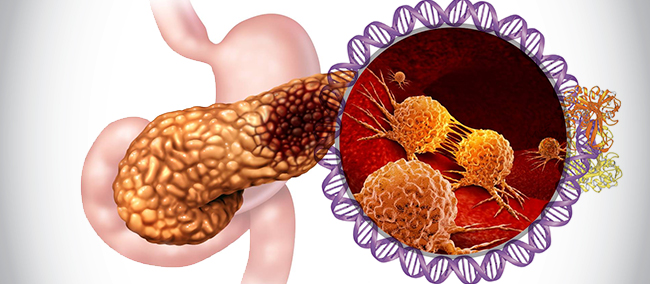
Pancreatic cancer may not be as common as some cancers, but it has a bad reputation for being highly fatal, especially since it’s difficult to detect early. Smoking, diabetes, family history, and alcohol abuse are among the top risk factors associated with this disease.
While it’s difficult to determine the exact causes of pancreatic cancer, a key mediator in its development is inflammation. Understanding why inflammation might lead to tumor growth in the pancreas has scientists examining the underlying mechanisms involved in the process, notably, changes in epigenetic regulation.
In many cancers, tumors can arise from sites of infection, chronic irritation, and inflammation. In the context of pancreatic cancer, inflammation from chronic pancreatitis correlates highly with tumor growth. This is because an inflammatory microenvironment, which aims to repair damaged tissues, fosters cell proliferation, survival, and migration. Still, most scientists don’t know precisely how inflammation contributes directly to tumorigenesis.
In a study from the University of Texas, MD Anderson Cancer Center, new evidence has come forth explaining the long-known link between inflammation and pancreatic cancer. The findings, which are available in the journal Science, report that pancreatic cells exhibit an adaptive response to recurring incidents of inflammation – one that initially works to shield tissues from damage yet can also promote the formation of tumors in the presence of KRAS mutation.
Normally, the KRAS gene acts as a switch to regulate cell growth. On the other hand, when the gene is abnormal, it can allow uncontrollable cell growth leading to cancer. Roughly 95% of all pancreatic cancer display a KRAS mutation, making it a primary driver of the disease.
“We discovered that a single transient inflammatory event induced long-term transcriptomic and epigenetic reprogramming of epithelial cells that cooperated with oncogenic KRAS to promote pancreatic tumors long after the inflammation was resolved,” said author Andrea Viale, M.D., assistant professor of Genomic Medicine. “In the setting of repeated pancreatitis, KRAS mutations can be acquired early on to limit tissue damage, suggesting the existence of a strong evolutionary pressure to select mutated cells and providing a possible explanation for the nearly universal presence of mutant KRAS in pancreatic cancers.”
Using different mice models, the researchers investigated the long-term effects of transitory inflammatory episodes in response to acute pancreatic damage triggered by the mutant KRAS gene. Immediately, pathological changes were observed in the pancreatic epithelial cells, but they were quickly resolved in about a week.
Months later, however, the mice with KRAS activation showed elevated tumor development when compared to the control group. According to the researchers, the results indicate that inflammation most likely causes enduring cellular changes that favor the oncogenic KRAS, thus allowing for cancer to multiply effortlessly.
When the researchers took a deeper look at the epithelial cells, they saw too that a single bout of inflammation caused a significant change in gene expression and epigenetic regulation. Moreover, it remained in the pancreatic tissue long after damage recovery. This type of cellular reprogramming, which the authors dubbed “epithelial memory,” mobilizes pathways associated with cell survival, proliferation, and embryonic development – the same pathways that are engaged during cancer development.
Previous studies have found that exposure to inflammatory stimuli can attach epigenetic marks to the DNA that alter chromatin accessibility, opening up access to specific gene locations. These marks or imprints are left behind and “remembered”, influencing a future response to inflammation exposure.
Basically, epithelial memory allows for cells to respond faster to inflammation in order to minimize tissue damage. Here, a process called acinar-to-ductal metaplasia (ADM) occurs, where pancreatic acinar cells, which normally secrete digestive enzymes, acquire ductal cells features for delivering those enzymes to the small intestine. With repeating episodes of inflammation, ADM goes into effect to protect the pancreatic tissue.
The KRAS mutation encourages and stabilizes ADM, as this study has demonstrated with very little tissue damage. Thus, cells undergoing inflammation tend to select the KRAS mutation because it stimulates ADM as a protective measure.
“We are working to better understand how cells maintain the epithelial memory we observed, but our data suggest that KRAS initially has a beneficial role during pancreatitis,” said I-Lin Ho, a graduate student in the Viale Laboratory. He suspects that there may be other cancers with similar phenomena to look into. As he states, “cancers with universal driver mutations, where there is a strong pressure to select those mutations based on some purpose unrelated to cancer development.”
The research team, including Edoardo Del Poggetto, Ph.D., postdoctoral fellow, is now working to create strategies that induce ADM in the pancreas while counteracting the selection pressure for mutated KRAS. It is hoped that their work may lead to new therapeutics for pancreatitis that could also prevent pancreatic cancer development.
Source: Del Poggetto, E. et al. (2021). Epithelial memory of inflammation limits tissue damage while promoting pancreatic tumorigenesis Science.
Reference: Link between inflammation and pancreatic cancer development uncovered. The University of Texas, MD Anderson Cancer Center. September 16, 2021.

